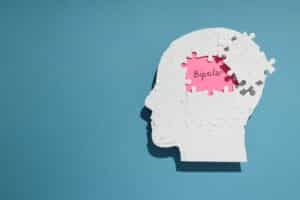Known as the “sunshine vitamin,” Vitamin D has recently been reported to play a factor in some chronic illnesses’ health benefits and treatment.
Both medical and psychological problems are caused by vitamin D deficiency. For the body to function correctly, it news vitamin D.
Vitamin D deficiency has presented itself once again as an epidemic, specifically in minority groups.
Some research has indicated that people with depression have lower levels of vitamin D than those without depression. Although there hasn’t been large-scale studies to support this, researchers have seen a correlation between the two.
To learn more about the link between vitamin D and mental health, continue reading.
What Is Vitamin D?
Vitamin D, also known as calciferol, is as essential for an individual’s mental health as it is for physical health. Among its many benefits, the fat-soluble nutrient aids in bone health and strengthens the immune system.
It has been seen to lower inflammation and regulate the body’s glucose metabolism. Vitamin D also helps prevents conditions such as rickets in children and aids in the prevention of osteoporosis in the elderly.
While our body absorbs vitamin D through sunlight and sun exposure, individuals can also gain vitamin D through dietary supplements and particular food like salmon, mushrooms, or egg yolks.
How Vitamin D Works in the Body
Components of your body such as your heart, brain, muscles, and immune system have receptors for vitamin D. Through the receptors, the body can transport the vitamin to organs like the kidneys and liver.
There it is converted into active hormones and assists the body in absorbing calcium. As previously mentioned, the body can absorb vitamin D through various ways like the sun or certain foods.
Vitamin D is the main component that determines an individual’s color, known as melanin. Because of this pigmentation, the skin is unable to absorb vitamin D sufficiently.
Vitamin D Deficiency
When your body does not absorb adequate amounts of Vitamin D, it is known as a vitamin D deficiency. A deficiency of vitamin D can lead to thin, distorted, and brittle bones.
Vitamin D deficiency can also lead to the following health problems:
- Bone softening
- Low bone density
- Osteoporosis
- Heart disease
- Cancer
Lower levels of vitamin D can also affect an individual’s mental health. It has been seen to contribute to schizophrenia in adults, depression, and seasonal affective disorder.
Link Between Vitamin D and Depression
According to the research on vitamin D supplementation and depression, there is a correlation between the two but not a causal relationship. In essence, while people who suffer from depression have lower vitamin D levels, it does not mean that was the caution of their illness.
If that were the case, then supplementation of Vitamin D would improve symptoms of depression, or it would be able to prevent it.
In a study called “Vitamin D and Depression: Where is all the Sunshine?,” the groups at risk for vitamin D deficiency included the elderly, adolescents, obese individuals, and people with chronic illnesses. Researchers also stated that these groups had been reported to be at risk for depression.
What Is Depression?
Major depressive disorder, also known as depression, is a mental health illness that affects how an individual thinks, feels, and acts. This mental health illness is relatively common, affecting over 18 million adults in any given year.
Symptoms of depression include:
- Lack of interest in hobbies or activities
- Suicidal ideation
- Trouble completing tasks
- Thoughts of guilt or hopelessness
- Lack of motivation
- Difficulty eating/sleeping
- Isolating themselves
- And more
Causes and Correlation
As listed above, one of the common symptoms of depression is the lack of interest in activities and social isolation. Because individuals with depression do not spend as much time outside as others, the lack of sun or vitamin D is apparent.
Some cases of major depressive disorder make it difficult for a person to get out of bed and participate in day-to-day activities outside. Isolating yourself from others makes things worse.
Furthermore, people with depression have difficulty taking care of themselves. There is a possibility that they are not eating properly and may not get vitamin D supplements. A person suffering from depression engages in behaviors that worsen vitamin D deficiency because depression alters their behavior and thought processes.
Call SoCal Sunrise Today!
Vitamin D is an essential nutrient to a healthy life, but it is not the sole cause of depression. While it doesn’t directly correlate with depression, it does have an interesting relationship with your mental health.
Contact us today to learn more about how you or a loved one can get help for their depression or mental health issue. Our expert staff is prepared to put together a plan that works for your specific needs.







